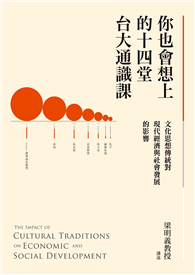Chapter 13 Modal verbs (1)
90 Modal verbs: general (1) 情態動詞的一般用法(1)
91 Modal verbs: general (2) 情態動詞的一般用法(2)
92 Ability: "can" and "be able to" 表示「能力」:can與be able to
93 Ability: "could" and "be able to" 表示「能力」:could與be able to
94 Permission: "can," "could," and "may" 表示「許可」:can、could和may
95 Obligation and necessity:"must" and "have to" 表示「義務與必要」:must和have to
96 Obligation and necessity:"have to" and "have got to"
表示「義務與必要」:have to和have got to
97 Obligation and choices: "mustn't," "don't have to," "haven't got to," "don't need to," "needn't," and "didn't need to"
表示「義務與必要」:mustn't、don't have to、haven't got to、don't need to、needn't、didn't need to
98 Obligation and advice: "should," "ought to," and "shall"
表示「義務與建議」:should、ought to、shall
99 Obligation and advice:"had better" and "be supposed to"
表示「義務與建議」:had better和be supposed to
Chapter 14 Modal verbs (2)
100 Possibility: may, might, could 表示「可能性」:may、might、could
101 Possibility: "can," "should," and "ought to" 表示「可能性」:can、should、ought to
102 Deduction: "must" and "can’t" 表示「推論」:must和can't
103 Requests: can, could, may, will, would 表示「要求」:can、could、may、will、would
104 Offers: will, shall, can, could, and would 表示「提供幫助」:will、shall、can、could、would
105 Suggestions: shall, let’s, why don’t we, how about, what about, can, could
表示「建議」:shall、let's、why don't we、how about、what about、can、could
106 Habits: used to 表示「習慣」:used to
107 Habits: will, would 表示「習慣」:will、would
108 Other uses of "will," "won't," and "wouldn't" will、won't、wouldn't的其他用法
109 Use of "would rather" and "may/might as well" would rather和may/might as well的用法
110 Important uses of "should" should的重要用法
Chapter 15 Passive voice
111 The passive: forms 被動語態的構成方式
112 The passive: general use 被動語態的一般用法
113 Verbs with two objects and the use of "by" and "with" in the passive
雙受詞的動詞以及by和with在被動句裡的用法
114 Common usage of the passive 常見的被動句型
115 Have something done have something done的用法
Chapter 16 Subjunctive mood and conditionals
116 "Wish" and "if only" wish和if only的用法
117 "If" sentences: open present or future conditionals
if子句:現在或未來的真實假設(有可能發生)
118 General conditionals: repeated events or truth 表示「習慣」或「真理」的條件句
119 "If" sentences: unreal present or future conditionals
if子句:與現在或未來事實相反的條件句
120 "If" sentences: unreal past conditionals if子句:與過去事實相反的條件句
121 Conditional clauses without "if" 不使用if的條件子句
122 "It's time in subjunctive mood" and "and/or in conditionals"
it's time的假設用法和and/or表示條件的用法
Chapter 17 Reported Speech
123 Direct and reported speech 直接引述與間接引述
124 Reported speech: verb forms (1) 間接引述的動詞時態(1)
125 Reported speech: verb forms (2) 間接引述的動詞時態(2)
126 Reported speech: changes of pronouns, adjectives, and adverbs
間接引述的代名詞、形容詞和副詞的變化
127 Reported questions 間接引述疑問句
128 Reported speeches using the "to infinitive" 使用不定詞的間接引述句
Chapter 18 Infinitives and -ing forms
129 Infinitives and -ing forms 不定詞與動名詞
130 Verbs with the "to infinitives" 必須接不定詞的動詞
131 Verbs with object and the "to infinitives" 通常要接受詞再接不定詞的動詞
132 Verbs followed by -ing forms 必須接動名詞的動詞
133 Verbs followed by -ing forms or infinitives with the same meaning
接動名詞或不定詞意義相同的動詞
134 Verbs followed by -ing forms or infinitives with different meanings (1)
接動名詞或不定詞意義不同的動詞(一)
135 Verbs followed by -ing forms or infinitives with different meanings (2)
接動名詞或不定詞意義不同的動詞(二)
136 Infinitives used as complements and infinitives of purpose
不定詞作補語和表「目的」的用法
137 Preposition with -ing forms 介系詞要接動名詞
138 "Need" and "see" with -ing form or the "to infinitive"
need和see接動名詞和不定詞的用法
139 Participle clauses 分詞子句
Chapter 19 Types of sentences
140 Yes/No questions Yes/No疑問句
141 Wh- questions Wh-疑問句
142 Question words: what, who, which, whose 疑問詞:what、who、which、whose
143 Question words: where, when, why, how 疑問詞:where、when、why、how
144 Negative questions 否定疑問句
145 Question tags 附加問句
146 Question tags: other forms 特殊的附加問句形式
147 Reply questions 回應式疑問句
148 Indirect questions 間接問句
149 Short replies with "so do I, neither do I, etc." so do I、neither do I的簡答句型
Chapter 20 Relative clauses
150 Defining and non-defining relative clauses 限定關係子句與非限定關係子句
151 Defining relative clauses with "who," "which," and "that"
以who、which、that引導的限定關係子句
152 Leaving out objective relative pronouns 限定關係子句中受詞關係代名詞的省略
153 Defining relative clauses with "whose," "where," "when," and "why/that"
以whose、where、when、why/that引導的限定關係子句
154 Non-defining relative clauses 非限定關係子句
155 Relative clauses with prepositions 搭配介系詞的關係子句
Chapter 21 Linking words
156 Linking words of time: when, as, while, as soon as, after, and until
表示時間的連接語:when、as、while、as soon as、before、after、until
157 Linking words of contrast: although, even though, though, however, in spite of, despite,
while, and "where as"
表示對比的連接語:although、even though、though、however、in spite of、despite、while、where as
158 Linking words of reason: because, because of, as, since, and "due to"
表示因果的連接語:because、because of、as、since、due to
159 Linking words of result: so, so that, as a result, therefore, and "so/such . . . that"
表示結果的連接語:so、as a result、therefore、so/such . . . that
160 Linking words of purpose: to, in order to, so as to, for, and "so that"
表示目的的連接語:to、in order to、so as to、for、so that
161 Linking words of purpose: in case 表示目的的連接語:in
Chapter 22 Prepositions of place and movement
162 Prepositions of place: basic meanings of in, at, on
表示地點的介系詞:in、at、on的基本意義
163 Prepositions of place: in, at, on with different locations
表示地點的介系詞:in、at、on說明各種地點的用法
164 Prepositions of place: over, under, above, below, underneath
表示地點的介系詞:over、under、above、below、underneath
165 Prepositions of place: in front of, behind, opposite, between
表示地點的介系詞:in front of、behind、opposite、between
166 Prepositions of place: near, next to, by, beside, against, inside, outside
表示地點的介系詞:near、next to、by、beside、against、inside、outside
167 Prepositions of movement: in, into, out of, on, onto, off
表示移動方向的介系詞:in、into、out of、on、onto、off
168 Prepositions of movement: up, down, from, to, forwards
表示移動方向的介系詞:up、down、from、to、forwards
169 Prepositions of movement: along, across, over, through, past, around
表示移動方向的介系詞:along、across、over、through、past、around
170 Transport: get in, get out of, get on, get off, by, on, in
表示「交通方式」的介系詞:get in、get out of、get on、get off、by、on、in
Chapter 23 Prepositions of time
171 Prepositions of time: in, at, on (1) 表示時間的介系詞:in、at、on(1)
172 Prepositions of time: in, at, on (2) Prepositions of time: in, at, on (2)
173 Prepositions of time: for, since, ago, before 表示時間的介系詞:for、since、ago、before
174 Prepositions of time: during (compared with "in," "for," and "while"
表示時間的介系詞:during與in、for、while 的比較
175 Prepositions of time: by, until, from . . . to, from . . . until, before, after
表示時間的介系詞:by、until、from . . . to、from . . . until、before、after
Chapter 24 Other prepositions
176 Individual usage of prepositions: with, by, in, on 一些介系詞的個別用法:with、by、in、on
177 Individual usage of prepositions: like, as, as if 一些介系詞的個別用法:like、as、as if
178 Indirect objects with or without "to" and "for" to和for搭配間接受詞的用法
179 Adjectives with specific prepositions (1) 形容詞所搭配的特定介系詞(1)
180 Adjectives with specific prepositions (2) 形容詞所搭配的特定介系詞(2)
181 Nouns with specific prepositions (1) 名詞所搭配的特定介系詞(1)
182 Nouns with specific prepositions (2) 名詞所搭配的特定介系詞(2)
183 Verb with specific prepositions 動詞所搭配的特定介系詞
184 Prepositional phrases 慣用的介系詞片語
185 Review of prepositions 介系詞總複習











